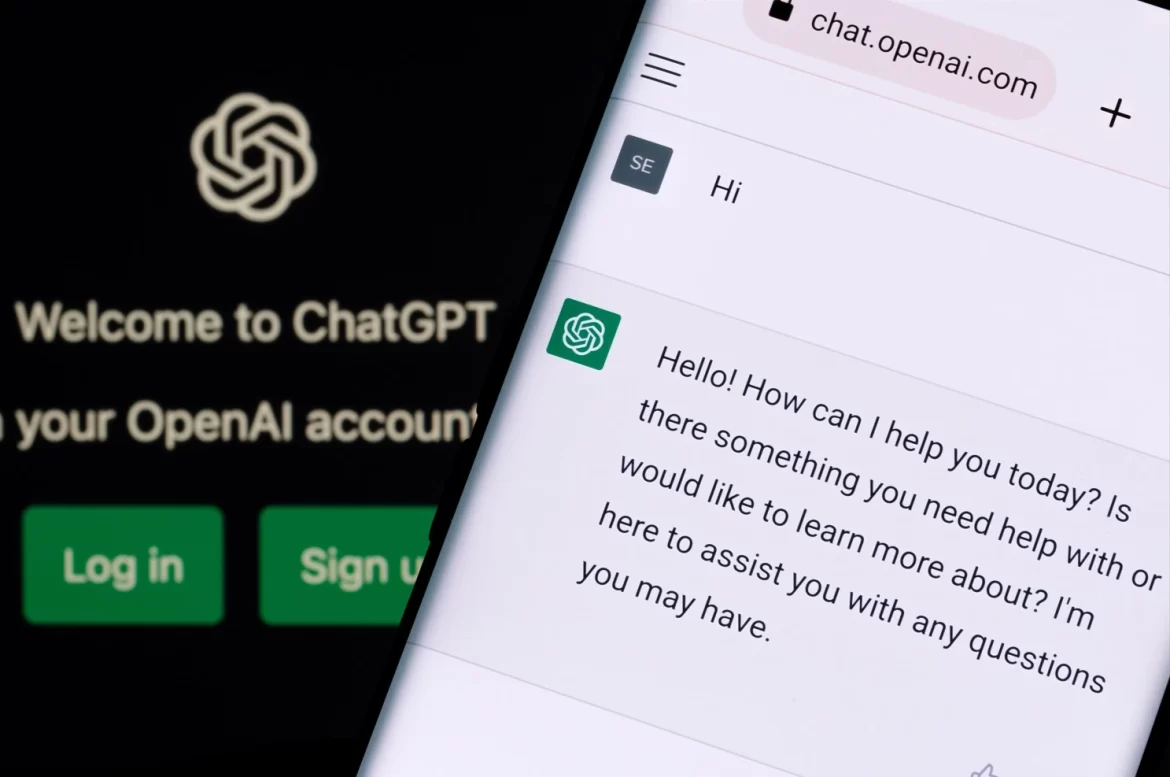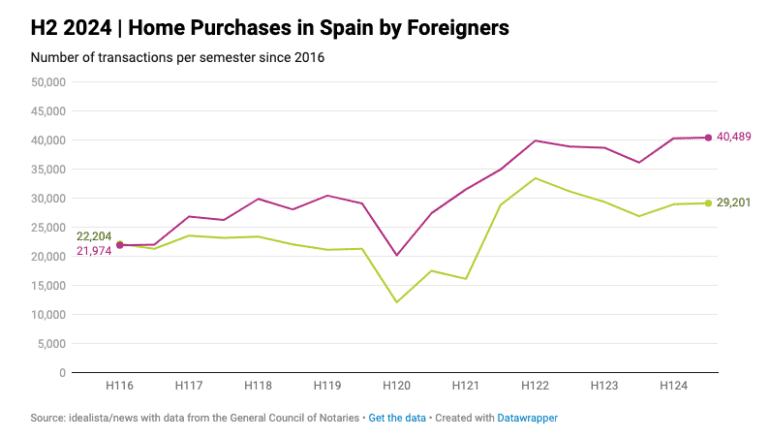-
 play_arrow
play_arrow
BayRadio Listen Live Broadcasting in Spain
Study warns that Artificial Intelligence threatens the loss of 300 million jobs

New report reveals at least 7% of full-time workers will lose their jobs as Artificial Intelligence threatens 300 million jobs worldwide, according to studies
A new report by Goldman Sachs, one of the world’s largest investment banking and securities firms, has found that the emergence of new Artificial Intelligence (AI) applications, such as ChatGPT, will put nearly 300 million jobs at risk, equivalent to a quarter of all work done in the Eurozone and United States.
According to the study, in the US, “of those occupations that are exposed,” between 25 and 50% of human jobs “can be replaced” by AI. In Europe, the impact will be similar. With the forecasted progress of technology, changes in labor markets are likely to occur. According to experts, administrative workers will be the most affected, with a 46% risk of being automated, compared to the “little effect” that AI will have on physical or outdoor occupations, such as construction jobs (6%) or building and floor cleaning and maintenance (1%).
However, the use of technology could also drive labor productivity growth and increase global GDP. “While the impact of AI on the labor market is likely to be significant, most jobs and industries are only partially exposed to automation and are therefore more likely to be complemented by AI rather than replaced. Most workers have occupations that are partially exposed to AI automation, and after the adoption of AI, they are likely to apply at least part of their liberated capacity to productive activities that increase production,” economists note. Overall, the group’s estimates suggest that in emerging markets, fewer jobs will be exposed to automation compared to developed markets.
Thus, as Goldman Sachs indicates, it is likely that Hong Kong, Israel, Japan, Sweden, and the US will be the five most affected countries. On the other end of the spectrum are mainland China, Nigeria, Vietnam, Kenya, and India. In Spain, many jobs are already being replaced by machines. Recently, an online training course company announced the dismissal of 89 workers, 45% of the entire workforce. From now on, their work will be done by AI.
Artificial Intelligence Sparks Controversy in Education
The use of artificial intelligence in education is causing controversy as its impact in classrooms continues to be debated. In New York, the use of AI has already been banned in exams and assignments. However, many educators believe that this measure is futile, as AI is here to stay and we need to learn to coexist with it.
The implementation of AI is unstoppable, and the possibility of using tools like ChatGPT from our phones or computers is causing concern in the education sector. Students have access to applications that can perform tasks almost instantly, tasks that would otherwise require significant study and effort. This has led to concerns about its impact on learning, as some authorities argue that it hinders critical thinking and undermines the learning process.
The controversy has reached the political arena in Spain, where the far-right party Vox has directed questions to the government about the use of AI by students at the National Distance Education University (UNED). The government responded that while it is necessary to monitor and review its use, they are not in favor of banning it.
Angel Barbero, a professor at ESCP Business School, believes that restricting students from using AI is like “putting doors on a field” because everyone has easy access to these applications. He insists that we need to face AI as a new tool for knowledge that allows for new learning methods.
Daniel Crespo, the rector of the Polytechnic University of Catalonia and president of CRUE Digital, supports regulating the use of AI, but not banning it. He believes that it is necessary to teach students how to use it responsibly, assess the risks and become critical users of AI.
For university professors, the challenge is to coexist with this new technology. The concern is particularly high in the humanities faculties, where evaluating works that have been developed using AI is more difficult. Crespo predicts a greater use of oral exams, in which students must defend their work. In this sense, AI can be a useful aid for students as long as they assimilate the knowledge. However, tools will be needed to enable professors to distinguish between works that have been created using AI and those that are entirely human. The debate over AI’s use in education is likely to continue as its influence grows.
Written by: BayRadio News
Similar posts
Recent Posts
- Marblanc Solar Completes First Solar Installation on Spain’s Costa Blanca
- Quirónsalud Torrevieja Hospital opens a new Outpatient Consultation Area to enhance patient comfort, efficiency and quality of care
- Facial sculpture – the ultimate facelift
- Xcel Energía becomes Alicante’s “most active solar installer” in 2025
- Why does our cervicofacial lifting technique achieve a natural result?

Ctra. Cabo La Nao, CC La Nao, Local 6 03730 Javea, Alicante, Spain
Advertise with us
Do you have a business in Spain? Do you provide a service to the expat community in Spain? Would you like your message to reach over 500.000 people on a weekly basis?
BayRadio is a community orientated radio station offering fantastic content to our many listeners and followers across our various platforms. Contact us now and find out what Bay can do for you!
Our business is helping your business grow.
BAY RADIO S.L. © 2024. ALL RIGHTS RESERVED. WEB DESIGN BY MEDIANIC








